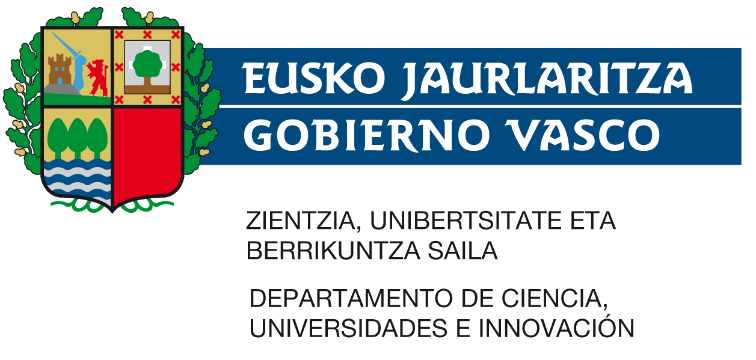Engineer - High-Pressure Gaseous Detector Engineer – Neutrino Physics (Closed)
francesc.monrabal@dipc.org
We are currently accepting applications for the above mentioned position. This is a unique opportunity for engineers or technical graduates; or sciences doctorates with a strong background in engineering to join one of DIPC’s high-profile research teams.
The role
We are seeking an innovative and technically skilled engineer to join our research team, focusing on the development and operation of high-pressure gaseous detectors for neutrino physics experiments. The successful candidate will play a critical role in designing, optimizing, and maintaining advanced detector systems capable of operating under extreme pressure conditions. These systems are pivotal for precision measurements and the detection of rare neutrino interactions.
Responsabilities:
- Design and prototype high-pressure gaseous detectors, including chamber structures, gas flow systems, and high-voltage configurations.
- Develop simulation models to optimize detector performance, such as energy resolution, particle tracking, and efficiency.
- Collaborate with physicists to integrate detectors into experimental setups and contribute to data acquisition systems.
- Ensure safety and reliability of high-pressure systems through rigorous testing and compliance with engineering standards.
- Analyze detector performance data and implement improvements.
- Provide technical documentation and training to team members.
Desired background & competences
The engineer working with high-pressure gaseous detectors for neutrino physics should possess a diverse set of technical skills and general competences to support the design, development, and optimization of cutting-edge detector systems. These competences include:
- Mechanical Design and CAD Proficiency:
- Advanced proficiency in SolidWorks or equivalent CAD software for designing complex detector components and pressure vessels.
- Experience in generating detailed engineering drawings and assemblies for manufacturing and integration.
- Pressure Vessel Design and Analysis:
- Capability to perform calculations for high-pressure vessels, ensuring structural integrity and compliance with safety standards (e.g., ASME, PED).
- Familiarity with finite element analysis (FEA) tools for stress analysis and failure prediction under high-pressure conditions.
- Material Selection and Testing:
- Knowledge of materials suitable for high-pressure and high-purity gas environments, including metals, alloys, and polymers.
- Experience in material testing, including pressure cycling, corrosion resistance, and mechanical durability.
- Prototyping and Fabrication:
- Hands-on experience with rapid prototyping techniques, including 3D printing (e.g., FDM, SLA, or metal printing), to create detector components for testing and validation.
- Familiarity with machining, welding, and other fabrication methods for pressure vessels and related systems.
- Gas Handling and Control Systems:
- Understanding of gas flow dynamics and experience with the design of gas control systems, including regulators, flowmeters, and valves.
- Knowledge of gas purity requirements and filtration techniques for detector operation.
- Instrumentation and Electronics Integration:
- Basic understanding of integrating sensors, high-voltage systems, and electronics with mechanical designs.
- Familiarity with signal acquisition and calibration techniques.
- Project and Safety Management:
- Competence in planning and managing projects, including documentation and risk assessments.
- Adherence to safety standards and practices related to high-pressure systems and hazardous gases.
- Collaboration and Communication:
- Strong teamwork skills for cross-disciplinary collaboration with physicists, technicians, and engineers.
- Ability to prepare technical reports and presentations for diverse audiences. These competences enable the engineer to contribute effectively to the design, assembly, and operation of advanced gaseous detector systems in high-stakes research environments.
Working conditions
- Estimated annual gross salary: Salary is commensurate with qualifications and consistent with our pay scales
- Target start date: 2024/12/23
We provide a highly stimulating research environment, and unique professional career development opportunities.
We offer and promote a diverse and inclusive environment and welcomes applicants regardless of age, disability, gender, nationality, ethnicity, religion, sexual orientation or gender identity.
The center
About the team
The Neutrino Group at the Donostia International Physics Center (DIPC) is a dynamic team engaged in cutting-edge research in neutrino physics and detector development. The group participates in different neutrino experiments looking for neutrino less double beta decay, neutrino-nucleus coherent interaction and neutrino oscillations. The group counts with a strong technical team with several engineers and students.
How to apply
Interested candidates should submit an updated CV and a brief statement of interest to the following application email below.
Reference letters are welcome but not indispensable.
The reference of the specific opening to which the candidate is applying should be stated in the subject line, and the application must be received before the application deadline.
Although candidates are welcome to contact the project supervisors to know further details about the proposed research activity, please be aware that the application will be evaluated only if it is submitted directly to the email address listed below as application email.
- Reference: 2024/44
- Application deadline: 2024/12/16
- Application email: jobs.research@dipc.org
Selection process
Applications received by the deadline will be evaluated by a Committee designed by the DIPC board on the basis of the following criteria:
- CV of the candidate (40%)
- Adequacy of the candidate’s scientific background to the project (40%)
- Reference letters (10%)
- Other: Diversity in gender, race, nationality, etc. (10%)
Evaluation results will be communicated to the candidates soon after. Positions will only be filled if qualified candidates are found.
The DIPC may revoke its decision if the candidate fails to join by the appointed time, in which case the position will be awarded to the candidate with the next highest score, provided it is above 50 (out of 100).
However, the selected candidate may keep the position if, in the opinion of the Selection Committee, the candidate duly justifies the reasons why he or she cannot join before the specified deadline, and as long as the project allows it.
This project has received funding from the Basque Government’s grant program “ESS”

